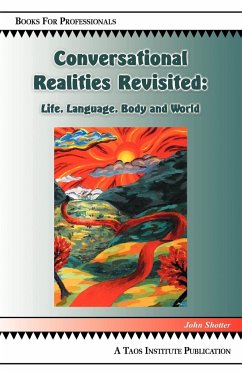In this important book, Sampson launches a new attack - this time on Western culture's centuries-long preoccupation with a contained, individualistic, monologic Self and its fearful suppression of all that is Other - all that is experienced as different from the implicit, self-affirming white male standard. This view, he demonstrates, focuses more on the leading protagonist and supporting cast that he has assembled to service his own interests, desires and fears, than on others as viable people in their own right. Denying the Other so as to create a world secured on behalf of the dominant groups' interests has become an obsession driving not only the larger culture but also the human sciences, in particular psychology's theories of human nature. Women, African-Americans and others not of the dominant classes have been constructed as serviceable Others, and appear in textbooks, journals and popular accounts as figures whose images and everyday realities have been created to serve the dominant groups' desires. Sampson uses the writings of Mikhail Bakhtin, George Herbert Mead, and postmodern and feminist theorists to reject this dangerous obsession and to create a dialogic foundation to replace the Other-suppressing views of psychology, and indeed, of all Western culture. Sampson's arguments are convincing, liberating, and have major implications for the human sciences and the people they claim to serve. 'Celebrating the Other' will change the way human nature is viewed and studied. As the author reminds us, in silencing the Other we distort our own situation and stunt our opportunities for growth - 'no one voice can be quoted without losing the greatest opportunity of all: to converse with otherness and to learn about our own otherness in and through those conversations.'








